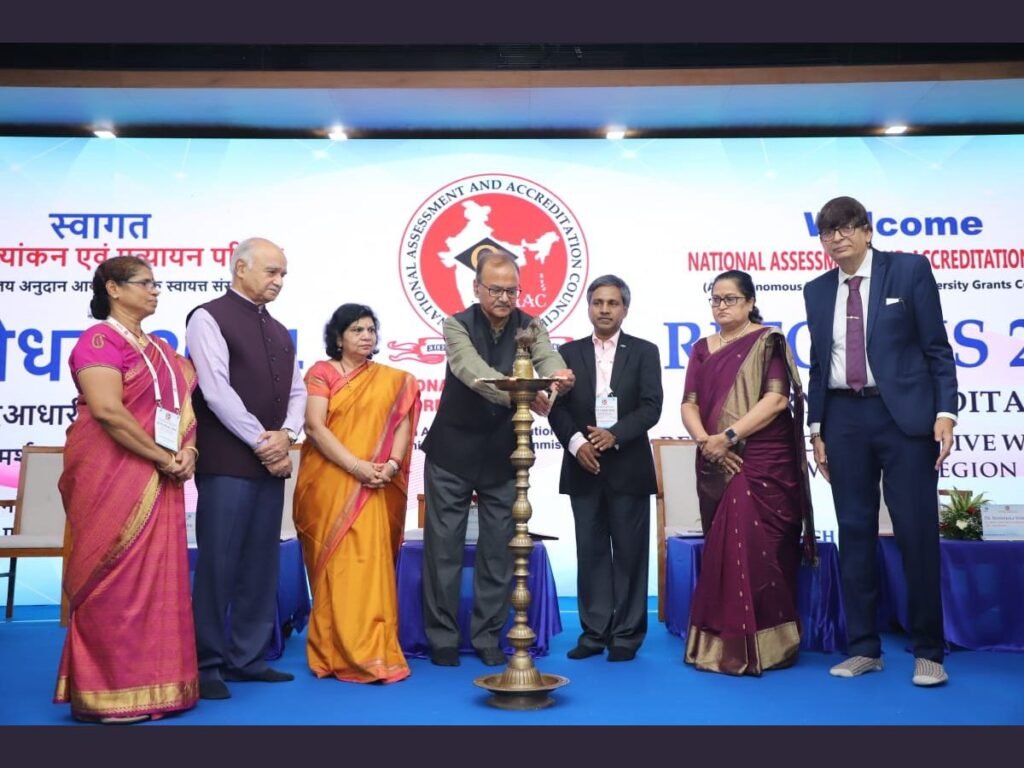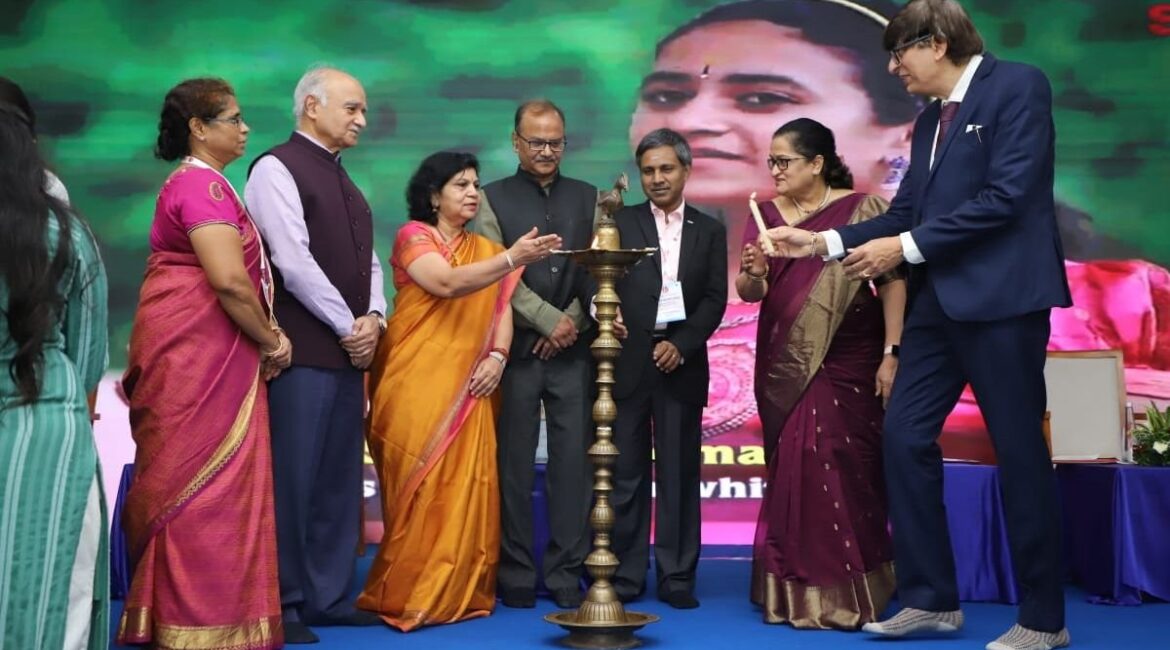Ahmedabad (Gujarat) [India] July 30 : Quality of higher education has been one of the important dimensions of NEP 2020. To make significant improvements in the quality of education, the Dr. Radhakrishnan Committee on transformative reforms in Accreditation, approved by the Ministry of Education, Government of India, made several key recommendations. Based on these recommendations, the Executive Committee of the National Assessment and Accreditation Council (NAAC) has proposed launching reforms in two phases: Binary Accreditation and Maturity-Based Graded Levels.
In the first phase NAAC is planning to launch Binary Accreditation. The Apex Committee and Discipline-wise Committees constituted by the Executive Committee to recommend the new accreditation system held approximately 40 meetings with consultation of stakeholders to finalize the necessary manuals and related processes for Binary accreditation. NAAC is now conducting five regional workshops to gather nationwide feedback from the Universities and Colleges on the Binary accreditation manual before its official launch in the upcoming months. Additionally, NAAC has engaging with the Higher Education Departments and Councils of various states to consult with them about the planned reforms in accreditation, thereby enabling the majority of institutions to participate in the new accreditation process.
A regional level Consultative Workshop was organized at Babasaheb Bhimrao Ambedkar University Lucknow for the benefit of Universities and Colleges located in the Western region covering Gujarat, Maharashtra, Madhya Pradesh, Rajasthan and Goa. The workshop was attended by about 1000 participants including Vice-Chancellors, Head of Academics, coordinators of Quality Assurance Cells of the institutions.

Dr. Ganesan Kannabiran, Director NAAC presented the high-level details of Reforms in Accreditation. The proposed reforms are transformative the quality of higher education to achieve Viksit Bharat 2024 vision of Prime Minister Narendra Modi Ji. In the first phase, the Binary accreditation will be launched in the next two months. The Binary framework is drawn from the 10 Attributes proposed by the Dr. Radhakrishnan Committee. The important change in the proposed framework is to measure the “Outcome and its Impact” of quality assurance of higher education towards socio-economic development of the nation. The framework is suitably configured to accommodate the requirements of Universities, Autonomous colleges and Affiliated colleges. In addition, the framework captures the uniqueness of institutions that have impacted the specific stakeholders group. The Framework incorporates the situation of rural and remote location institutions, which may be located in Aspirational Districts across the country.
Given the fact that the current percentage of colleges accredited is relatively low, it is proposed to launch several hand holding initiatives to reach out and support institutions to come forward for participation in the accreditation process. In addition, the institutions located in rural and remote locations are likely to receive mentoring support from NAAC in order to ensure on institution is left behind in the new and transformative quality movement. The new framework symbolizes “Ease of doing business and Confidence in system” and enables self-directed motivation towards accreditation without any fear or inhibitions.
The proposed framework is expected to take less cycle time, less accreditation fee and most importantly avoids physical peer team visits to the institutions as part of assessment. Also, the data validation which is largely quantitative, will be carried out by peer institutions to ensure objectivity and correctness of assessment. The proposed tentative framework of 10 Attributes includes 59 metrics for universities, 56 for autonomous colleges, and 46 for affiliated colleges. NAAC had also prepared various discipline-specific manuals suitable for disciplines such as Law, Health Sciences, and Management, etc. to accommodate the specific requirements of these disciplines.
Further, it is to be noted that that aspects to be captured in the new proposed format included- Ways and means to address and overcome certain common challenges like environmental concerns, ecological imbalance, emphasis on employability, strengthening of value system in higher education, Internationalization of higher education and emphasis on the Indian Knowledge System.
Dr. Sujata Shanbhag, Adviser NAAC presented details of metrics and measurement of the proposed Binary framework.

